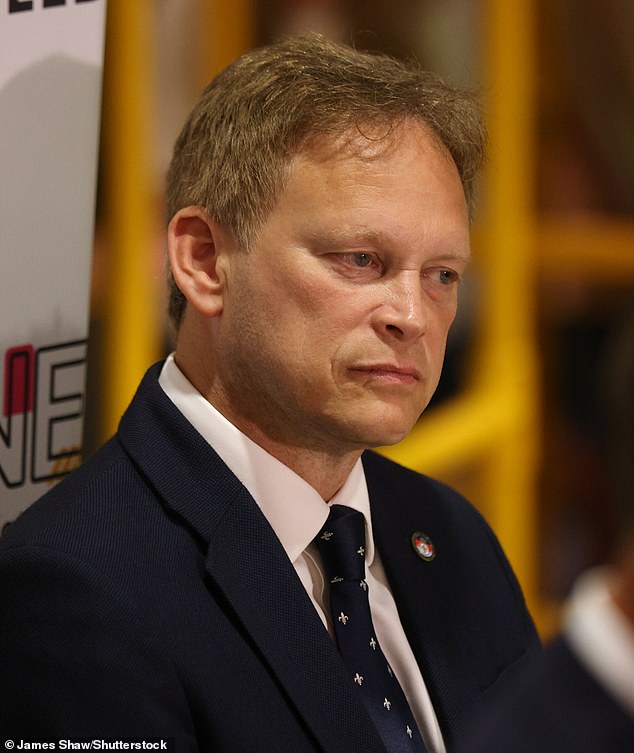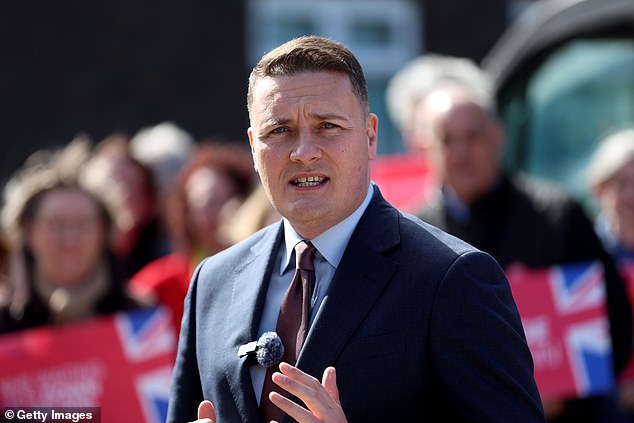NHS trusts have been prioritising black and ethnic minority applicants on interview shortlists – in line with NHS England guidance.
Official documents recommend recruiters use the Rooney Rule, a policy from American football saying those of ethnic minorities must be shortlisted for interviews if they apply.
Liverpool Women’s NHS Foundation Trust, for example, has said it has used ‘positive discrimination’ in this way when narrowing down candidates for interview, The Telegraph reports.
The administrative body managing England’s health services has also said managers must justify hiring white British nationals – and NHS Employers recommends using race as a ‘tie-breaker’ to decide between neck-and-neck candidates.
Former Tory Defence Secretary Grant Shapps said: ‘This kind of tick-box policy is patronising, divisive and fundamentally wrong. Jobs should be awarded on merit, not skin colour.
‘We should be building a colour-blind society, not entrenching racial quotas under the banner of “diversity”.’
One Conservative Party source went further, saying the NHS was looking to ‘discriminate against applicants based on their race‘.
It comes amid a row about recruitment approaches in the public sector, after West Yorkshire Police said it would temporarily block white British people from applying to the force.

NHS trusts have been prioritising black and ethnic minority applicants on interview shortlists – in line with NHS England guidance. Pictured: File photo

Former Tory Defence Secretary Grant Shapps (pictured) said: ‘This kind of tick-box policy is patronising, divisive and fundamentally wrong. Jobs should be awarded on merit, not skin colour’

Liverpool Women’s NHS Foundation Trust, for example, has said it has used ‘positive discrimination’ in this way when narrowing down candidates for interview. Pictured: File photo
It also comes despite Health Secretary Wes Streeting criticising ‘misguided’ diversity drives earlier this year.
He said the NHS should go ‘back to basics’ and focus on reducing its backlog of 7.4million and improving its lowest ever public satisfaction scores.
Tory MP for Harborough, Oadby and Wigston, Neil O’Brien, said recruiters should not ‘lump together every non-white group as if they are all the same’.
He said hiring policies based on race could see someone more ‘privileged’ chosen for a role over someone less advantaged, ‘as long as they have the right skin colour’.
Currently, 76 per cent of NHS trusts are more likely to hire a white person than someone from a minority background after interviews.
NHS England guidance titled ‘improving the selection process’, available in the public domain, advises employers to ‘consider using a version of the Rooney Rule’.
The guidelines for the East of England region recommends they could also ‘increase the numbers of under-represented groups who are shortlisted’.
Another document, named ‘No More Tick Boxes’, gives examples of various NHS trusts’ diversity drives – referring to ‘at least one trust’ which uses ‘a version’ of the Rooney Rule.

It also comes despite Health Secretary Wes Streeting (pictured) criticising ‘misguided’ diversity drives earlier this year
It also mentions a hospital that will only move forward with the interview process if at least one female candidate and one applicant of an ethnic minority is shortlisted.
A different NHS England document, titled ‘A Model Employer’, advises employers to have at least one person from a minority background in interviews.
It says there would ‘seldom be acceptable exceptions for not having a BME member’.
Hiring managers, it adds, are ‘accountable for institutionalising diverse shortlisting and interview panels’ – and must explain themselves if they hire white British people.
The London Ambulance Service and north London’s Royal Free Hospital, among others, also require interviews to explain if a candidate of a minority background is not appointed after shortlisting.
Such approaches have a legal basis in 2010’s Equality Act, which said employers could take ‘positive action’ when recruiting those of ethnic minorities.
It was drawn up by then Labour Equalities Minister, Baroness Harriet Harman.
A section of it permits employers to prioritise under-represented groups if they are equally as qualified as a white person.

The London Ambulance Service and north London’s Royal Free Hospital, among others, also require interviews to explain if a candidate of a minority background is not appointed after shortlisting. Pictured: File photo
East Lancashire Hospitals Trust and NHS Bristol, North Somerset and South Gloucestershire Integrated Care Board are among the NHS organisations that have used this approach, dubbed ‘equal merit’.
But it is illegal to employ positive discrimination – favouring a candidate of an ethnic minority over a more qualified white candidate – in the UK.
Those who advocate the Rooney Rule and other similar approaches say they are fair because everyone on the shortlist is subject to the same interview process.
A scheme named the Workforce Race Equality Standard measures the progress NHS organisations make on promoting diversity, assessing them on nine categories.
Under one of them, trusts should improve the ‘relative likelihood of white applicants being appointed from shortlisting compared to BME applications’.
The NHS has set a target to make sure, by 2028, that its leaders reflect the proportion of its workforce that is of black and ethnic minority backgrounds.
A spokesperson for the NHS said: ‘All NHS organisations should have recruitment policies that are fair for everyone.’







